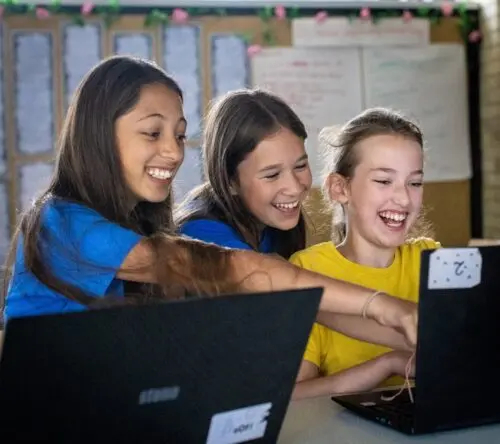On 22 May 2024, we announced that we are intending to list the Foundation’s commercial subsidiary, Raspberry Pi Ltd, on the Main Market of the London Stock Exchange. This is called an Initial Public Offering (IPO).
The IPO process is — quite rightly — highly regulated, and information about the company and the potential listing can be found on the Investor Portal on Raspberry Pi Ltd’s website. If that’s what you’re looking for, head there.
In this blog post, I want to explain what an IPO of Raspberry Pi Ltd would mean for the Raspberry Pi Foundation.
A tale of two Raspberry Pis
The Raspberry Pi Foundation was founded in 2008 as a UK-based educational charity. Our co-founders wanted to inspire more young people to explore the joys of coding and creating with technology, with the goal of increasing both the number and diversity of kids choosing to study computer science and engineering.
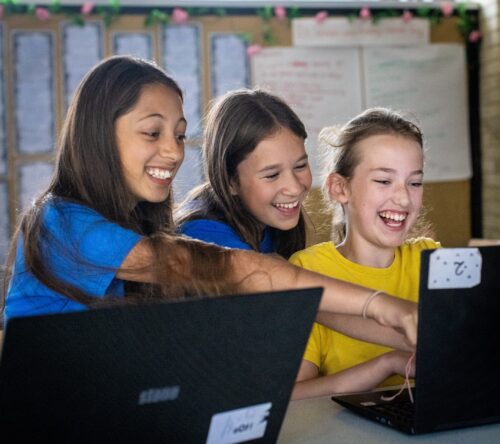
Their idea was to create a low-cost, programmable computer that could rekindle some of the excitement sparked in young minds at the start of the personal computing revolution by platforms like the BBC Micro and ZX Spectrum (incidentally also invented in Cambridge, UK).
Raspberry Pi Ltd was incorporated in 2012 as the commercial subsidiary of the Foundation and is responsible for all aspects of design, production, and distribution of Raspberry Pi computers and associated technologies. It has always been a commercial company, albeit one that was initially wholly owned by a charity.
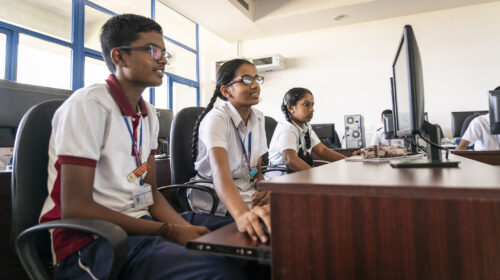
It’s fairly common for UK charities to have subsidiaries that handle their commercial activities. Guidance from the regulator, the Charity Commission, explains that it helps protect the charity’s assets and ensures that the charity benefits from tax relief on profits that are generated from commercial activities and used to advance the charity’s objectives.
So Raspberry Pi has pretty much always been a tale of two organisations: the Foundation, which is a charity, and Raspberry Pi Ltd, which is a commercial company. While we are legally and practically separate organisations, we are united by a mission to democratise computing, and by a set of values that reflect the community of makers, engineers, and educators that have always been such a central part of the Raspberry Pi story.
Computing for everybody
In the years since the launch of the first Raspberry Pi computer in 2012, Raspberry Pi Ltd has continued to innovate and expand its range of products, evolving into a leading provider of high-performance, single-board computers and associated technologies for industrial and embedded uses, as well as for enthusiasts and educators, in markets worldwide. For more information on the company and all it has achieved, you should take a look at the Investor Portal.
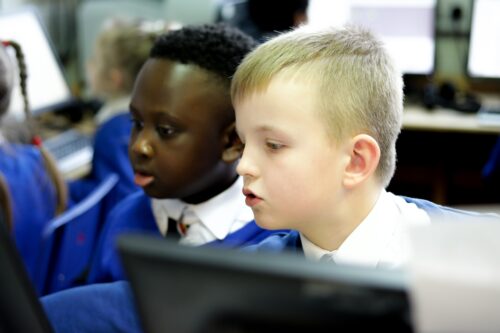
For me, one of the most important things about a Raspberry Pi computer is that kids are learning to code on the same platform that is used by the world’s leading engineers and scientists. It’s not a toy, although it is a lot of fun.
Crucially, the commitment to low-cost computing that was at the heart of Raspberry Pi’s founding ethos remains unchanged and has been enshrined in a legally binding agreement between the Foundation and the company. This means that Raspberry Pi will always produce low-cost, general-purpose computers that can be used for teaching and learning.
Over that same period, the Foundation has innovated and expanded its educational products and learning experiences to the point where we are now widely recognised as one of the world’s leading contributors to the democratisation of computing education.
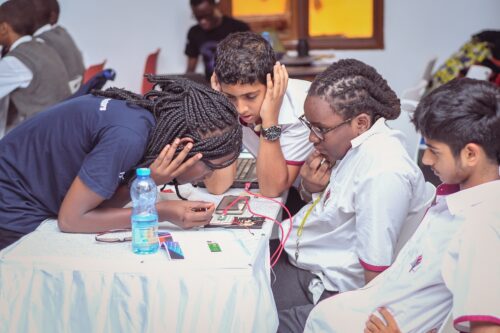
We create curricula and classroom resources that are used in schools all over the globe, covering everything from basic digital skills to computer science and AI literacy. We provide high-quality professional development for teachers and we build software tools that reduce barriers, save time, and improve learning outcomes. We also support the world’s largest network of free coding clubs and inspire young people to get creative with tech through showcases and challenges. All of this is completely free for teachers and students wherever they are in the world.
We are also advancing the field of computing education through undertaking original research and translating evidence of what works into practice.
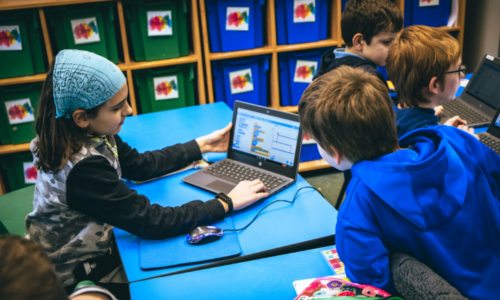
Importantly, the Foundation is device- and platform-agnostic. That means that, while Raspberry Pi computers make a huge contribution to our educational mission, you don’t need to use a Raspberry Pi computer to engage with our learning experiences and resources.
The next stage of growth and impact
The proposed IPO is all about securing the next stage of growth and impact for both the Foundation and the commercial company.
To date, Raspberry Pi Ltd has donated nearly $50m from its profits to the Foundation, which we have used to advance our educational mission combined with over $60m in funding from philanthropy, sponsorship, and contracts for educational services.
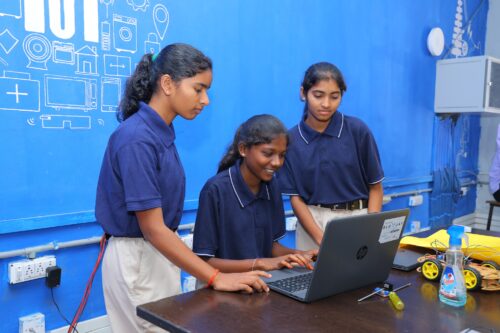
As the company has continued to grow, it has needed working capital and funding to invest in innovation and product development. Over the past few years that has mainly come from retained profits. Listing Raspberry Pi Ltd on a public market will enable the company to raise additional capital through issuing new shares, which will lead to broader reach, greater impact, and ultimately more value being created for the benefit of all shareholders, including the Foundation.
From the Foundation’s perspective, an IPO provides us with the ability to sell some of our shares to raise money to finance a sustainable expansion of our educational activities. Put simply, instead of receiving a share of the company’s profits each year, we will convert some of our shareholding into an endowment that we will use to fund our educational programmes.
What happens after the IPO?
Assuming we proceed with the IPO, what is now Raspberry Pi Ltd will become a public company that trades its shares on the Main Market of the London Stock Exchange.
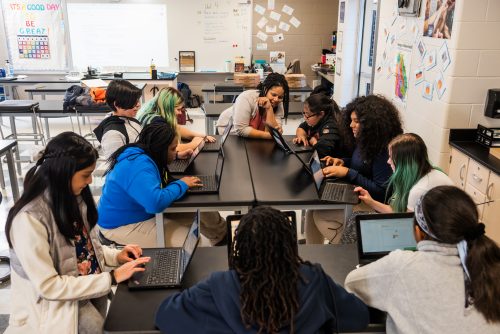
The Foundation will remain a significant shareholder and we will continue to share the Raspberry Pi brand. We will be involved in decision making on the same basis as all other shareholders. Our goal will be to support the company to be as successful as possible in its mission to make computing accessible and affordable for everybody.
The Foundation will use any funds that we raise through the sale of shares at the IPO — or subsequently — to advance our ambitious global strategy to enable every young person to realise their full potential through the power of computing and digital technologies.
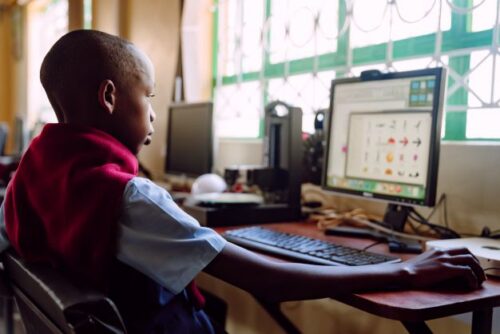
Partnership will continue to be at the heart of our strategy and we will work closely with businesses, foundations, and governments to ensure that our work reaches as many teachers and young people as possible. Our ambition is that around 50% of our activities will be funded from the endowment and 50% through partnerships and donations, enabling us to reach many more teachers and students by combining our resources and expertise with those of the many partners who share our mission.
Creating a lasting legacy
Whatever happens with the IPO, Raspberry Pi has already had a huge impact on the world. It’s been an enormous privilege to be part of the journey so far, and I am hugely excited about the potential of this next phase.
I want to pay tribute to all of our co-founders for setting us off on this great adventure, and particularly to Jack Lang, who very sadly passed away earlier this month. Jack made an exceptional and unique contribution to the Raspberry Pi story, and he deserves to go down in history as one of the most significant figures in computing education in the UK. I know he would have shared my excitement about this next chapter in the Raspberry Pi story.
With the pace of technological advances in fields like AI, our mission has never been more vital. We have the potential to positively impact the lives of tens of millions of young people who might otherwise miss out on the opportunity to change the world for the better through technology.
Website: LINK

